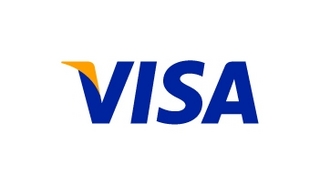Microsoft's undeclared patent claims on Sender ID technology is holding up adoption of the e-mail authentication specification
Published:
14 September 2004 y., Tuesday
Microsoft's undeclared patent claims on Sender ID technology is holding up adoption of the e-mail authentication specification, and it's not clear when the issue will be resolved.
The MTA Authorization Records in DNS (MARID) working group was supposed to conclude its discussion of Sender ID Friday and send it to the next stage of the Internet Engineering Task Force (IETF) standards adoption. But an e-mail from one of the chairmen over the weekend put an end to that.
Andrew Newton outlined four areas where some form of consensus within the community has been reached in regards to Sender ID so far: DNS name prefix, Sender Policy Framework (SPF)-specific record types, support for multiple authentication schemes and patent claims. But no mention was made as to when a final draft for Sender ID will move forward for adoption as a proposed standard.
Microsoft's patent claim centers on the combined use of two Internet drafts: draft-ietf-marid-core-03 (Sender ID) and draft-ietf-marid-pra-00 (the Purported Responsible Address [PRA] algorithm developed by Microsoft). The open source community says the license agreement protecting those patents violate the GPL (define). So to try and accommodate the needs of the open source community while still keeping Sender ID alive as a viable technology, Newton and Marshall Rose, the other MARID co-chair, floated a compromise measure to separate the PRA algorithm from Sender ID last week.
It's a compromise that lets those comfortable with Microsoft's license agreement continue to use Sender ID with the PRA check, while letting others develop their own authentication scheme for e-mails and still be able to use the core Sender ID specification.
Unfortunately, because of the unspecified nature of the patents, MARID working group members still weren't convinced that removing the algorithm would completely absolve users from the necessity of signing a license agreement. Also, deciding which authentication "check" to use caused a gridlock on any decision supporting the compromise.
Šaltinis:
internetnews.com
Copying, publishing, announcing any information from the News.lt portal without written permission of News.lt editorial office is prohibited.
The most popular articles
Software company announced new structure_ of it_s business.
more »
 Wincor Nixdorf is enhancing its consulting portfolio for the banking business.
more »
Wincor Nixdorf is enhancing its consulting portfolio for the banking business.
more »
 Wincor Nixdorf is set to present its ProClassic Enterprise Cash Management software for effective and rational organization of end-to end cash management processes in banks at the Retail Delivery Show.
more »
Wincor Nixdorf is set to present its ProClassic Enterprise Cash Management software for effective and rational organization of end-to end cash management processes in banks at the Retail Delivery Show.
more »
 Yahoo said Jerry Yang will step down as chief executive as soon as the board finds a replacement.
more »
Yahoo said Jerry Yang will step down as chief executive as soon as the board finds a replacement.
more »
 Wincor Nixdorf AG has turned in the best year in its history.
more »
Wincor Nixdorf AG has turned in the best year in its history.
more »
 Visa Inc. is working with the Los Angeles transit authority to allow train, subway and bus riders to pay fares with Visa’s payWave-enabled contactless cards.
more »
Visa Inc. is working with the Los Angeles transit authority to allow train, subway and bus riders to pay fares with Visa’s payWave-enabled contactless cards.
more »
 Customers line up in New York City to be the first to buy Google's new G1 phone.
more »
Customers line up in New York City to be the first to buy Google's new G1 phone.
more »
 Children and teenagers are keen internet users - 12 to 15-year-olds spend at least three hours a day on screen - but are not always aware of the dangers: not just sites showing child pornography or violence but also the risk of bullying or grooming.
more »
Children and teenagers are keen internet users - 12 to 15-year-olds spend at least three hours a day on screen - but are not always aware of the dangers: not just sites showing child pornography or violence but also the risk of bullying or grooming.
more »
 A European Commission study found that devices left on stand-by throughout the European Union in 2005 consumed the same amount of electrical energy as a country the size of Greece or Portugal in 2008.
more »
A European Commission study found that devices left on stand-by throughout the European Union in 2005 consumed the same amount of electrical energy as a country the size of Greece or Portugal in 2008.
more »
 The European Commission has launched a new web portal called “Study in Europe” to promote the attractiveness of European Higher Education to students from other parts of the world.
more »
The European Commission has launched a new web portal called “Study in Europe” to promote the attractiveness of European Higher Education to students from other parts of the world.
more »
 With the increasing availability of the internet, children are being exposed more and more to illicit images and content.
more »
With the increasing availability of the internet, children are being exposed more and more to illicit images and content.
more »